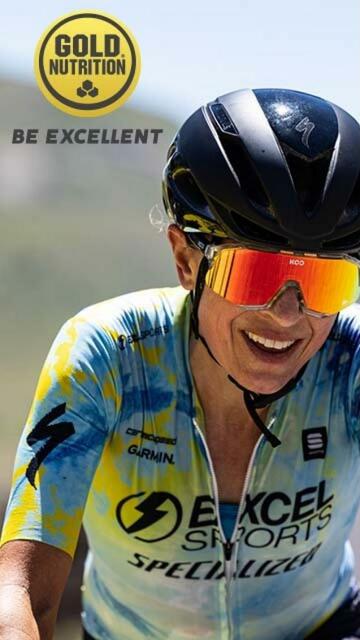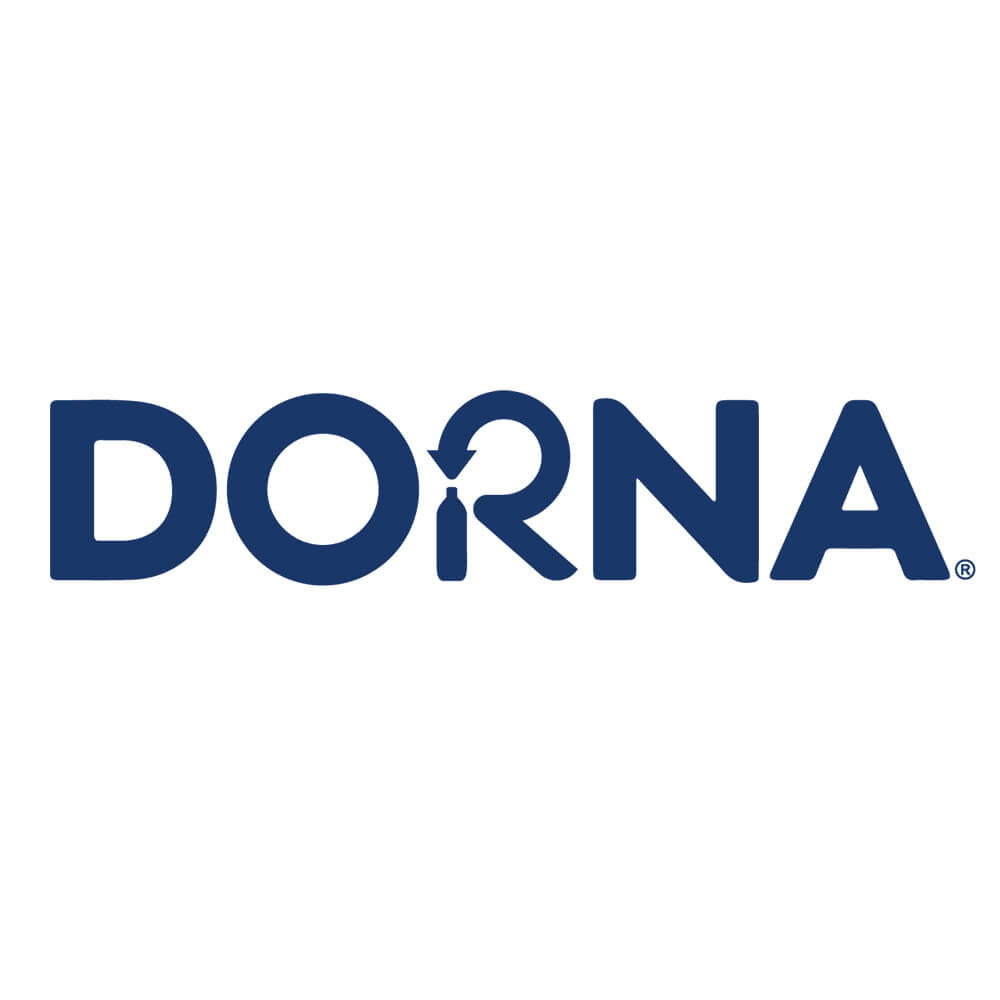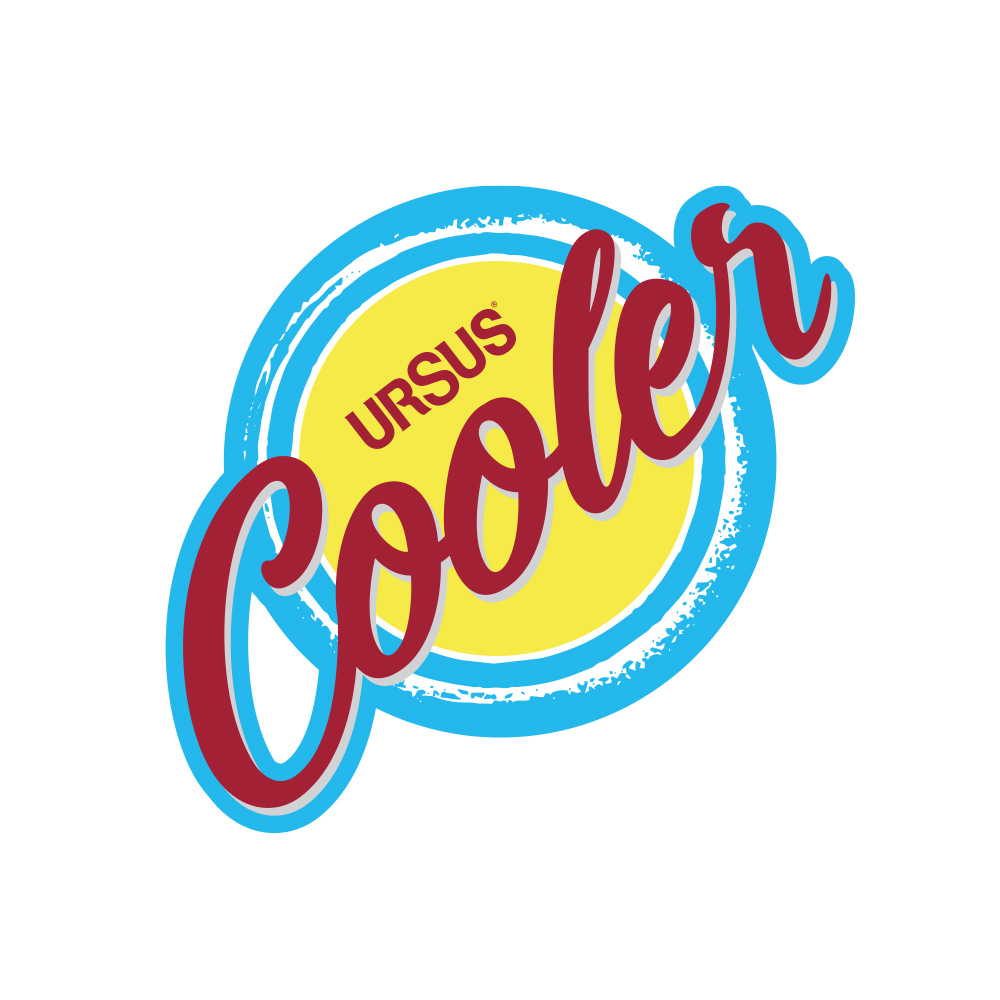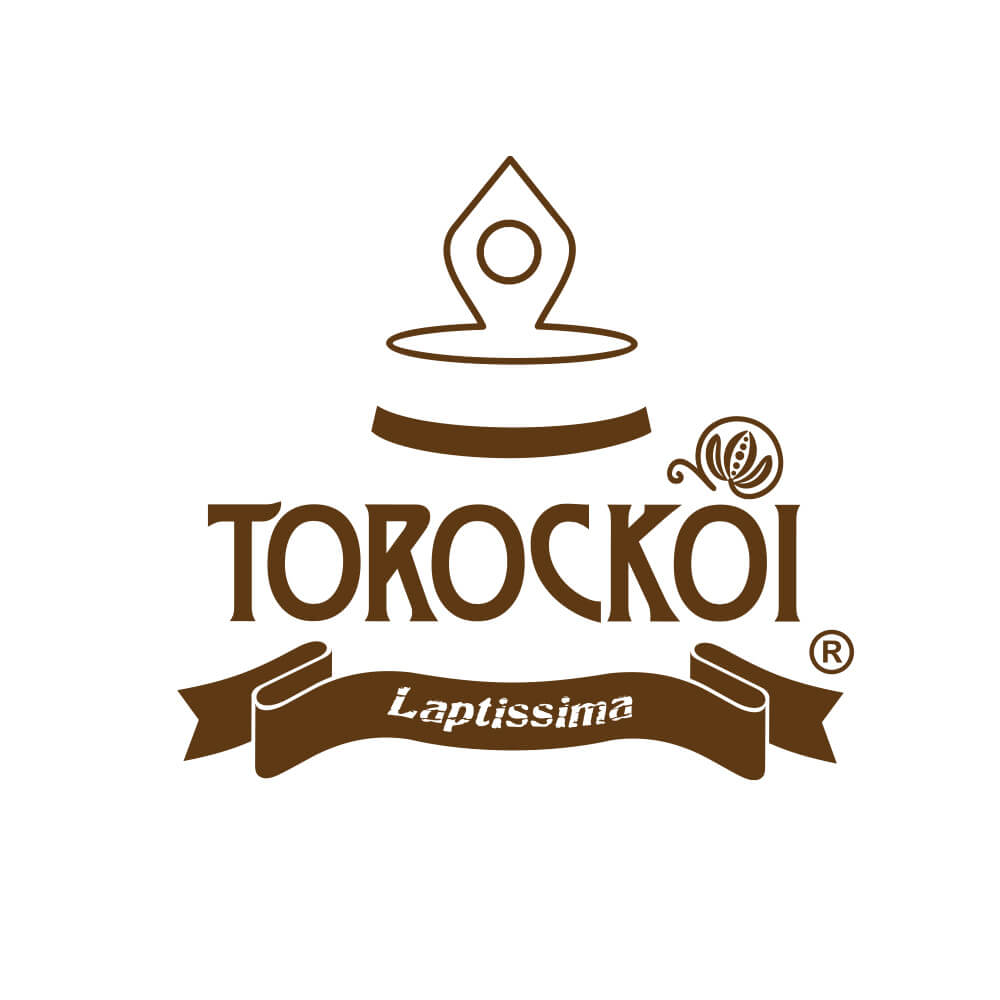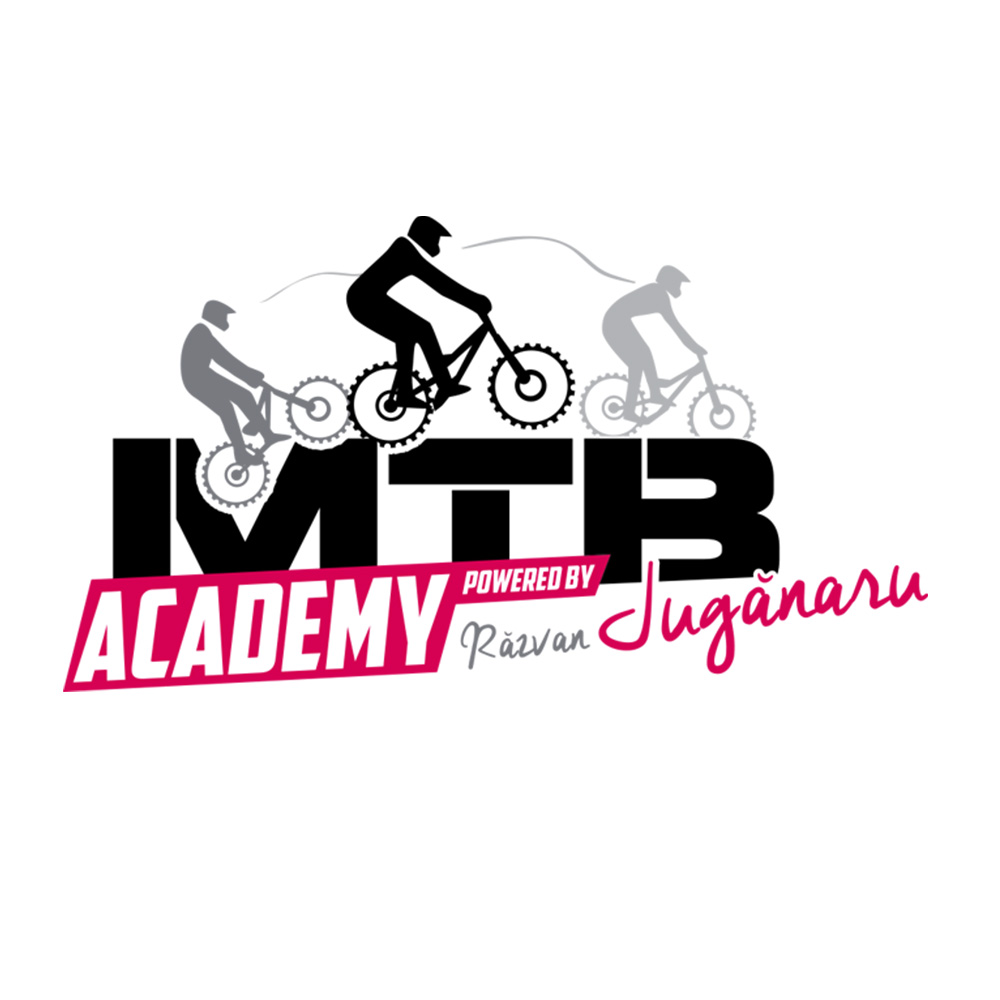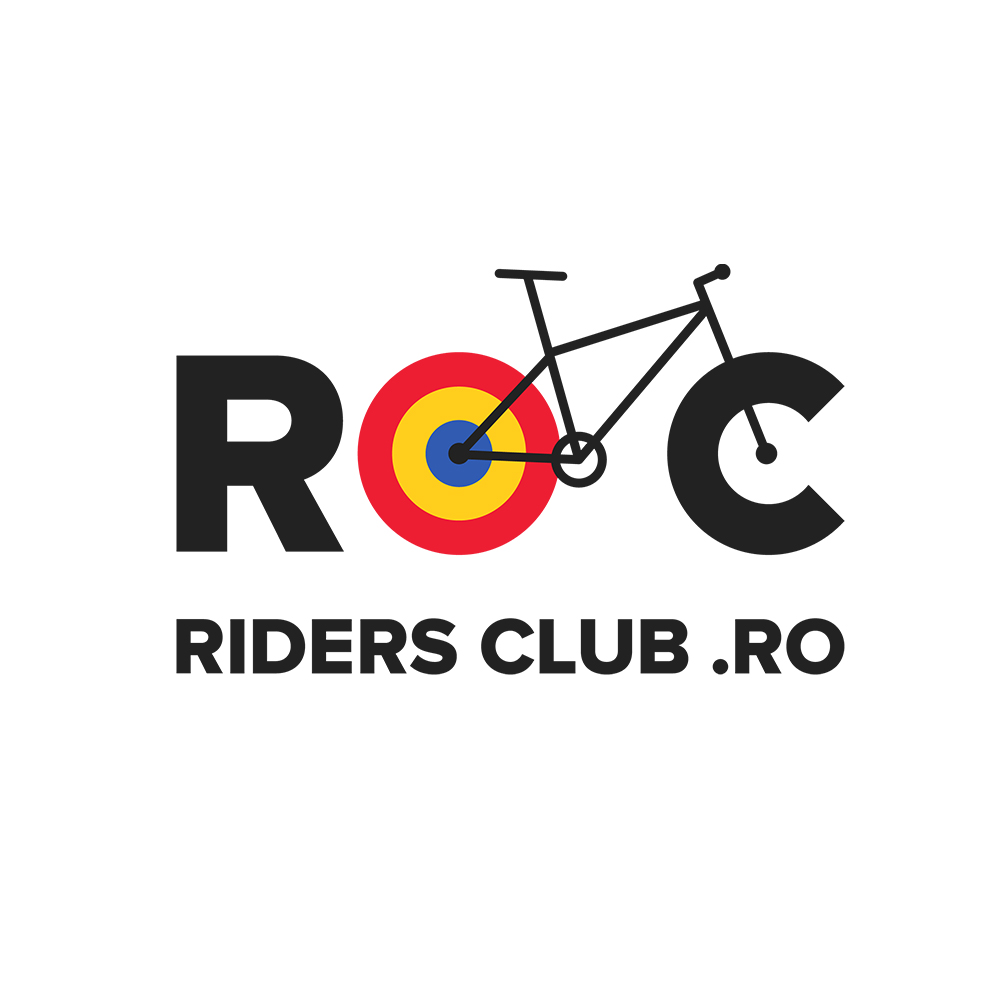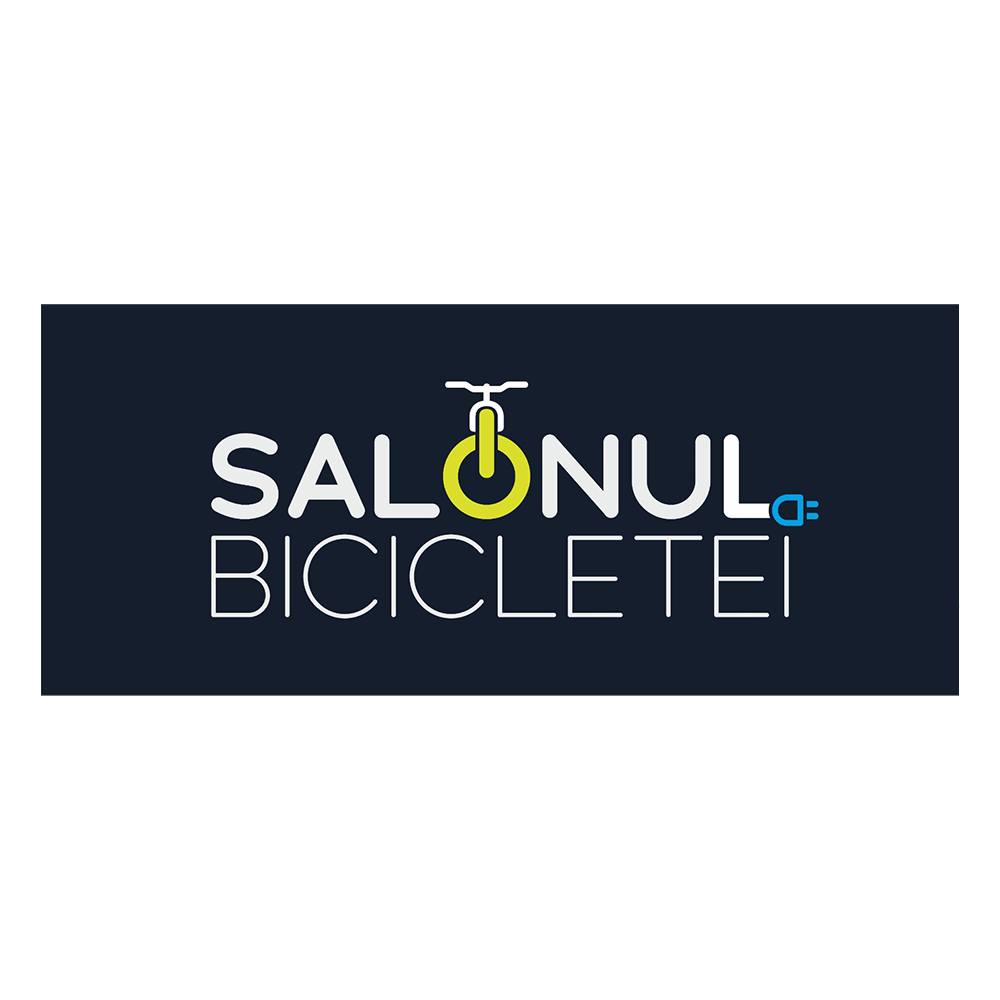NUTRITION GUIDE by PowerBar
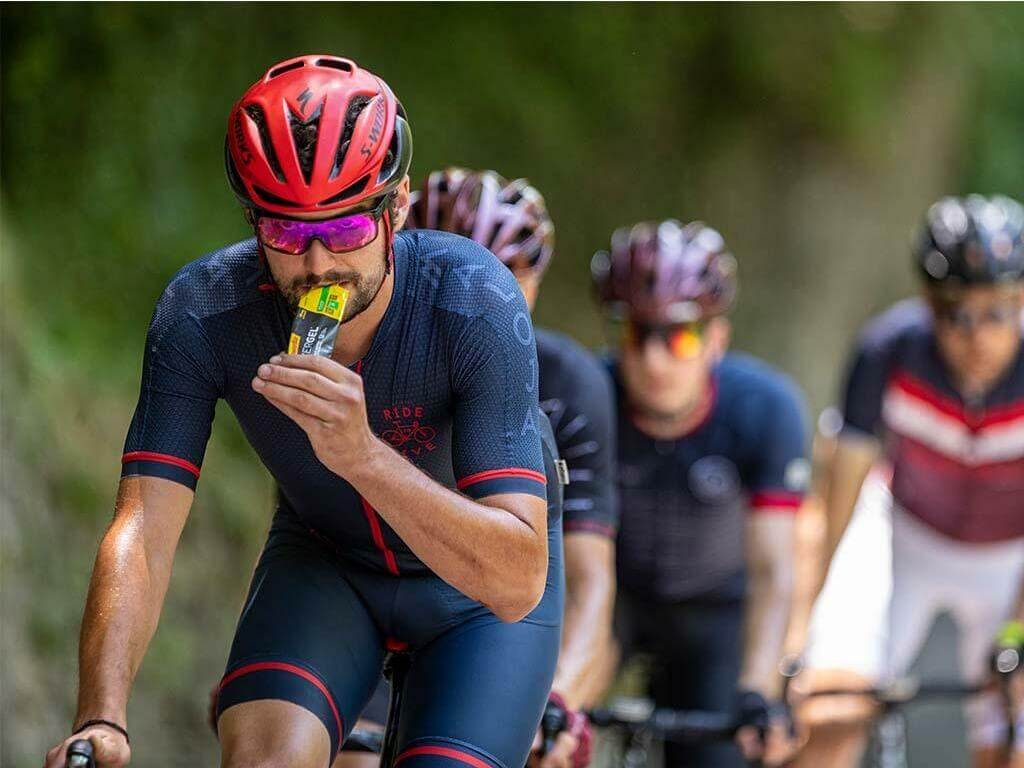
In this PowerBar nutrition guide for cyclists you'll learn more about the three principles of sports nutrition and why proper nutrition is a key part of your training arsenal.
Why is sports nutrition so important?
If you want to keep up the pace and finish your sports activities with strength, it is absolutely essential to supply your body with the right amount of fluids and nutrients. A healthy diet that meets your daily needs will give you a solid foundation to reach your goals. Combining this with a focused sports nutrition strategy before, during and after training will give you the best chance of performing at your best.
The 3 principles of sports nutrition
The three most important principles of nutrition for endurance athletes are:
- Hydration
- Energy
- Recovery
1. HYDRATION
Dehydration is a major reason why you may experience fatigue when participating in any physical activity. To combat this, follow these three simple steps:
- When starting any sporting activity, make sure you are well hydrated.
- When running or cycling, always make sure to hydrate at regular intervals.
- When physical activity comes to an end, make sure you give yourself the best chance of recovery by rehydrating.
Isotonic sports drinks - how do they work?
Isotonic sports drinks (carbohydrate-electrolyte solutions, eg C2MAX*) are the choice of athletes. They have the same particle density (osmolality) as blood plasma and are therefore rapidly cleared from the gut, which quickly replace fluids lost through sweat and maintain hydration during prolonged exercise.
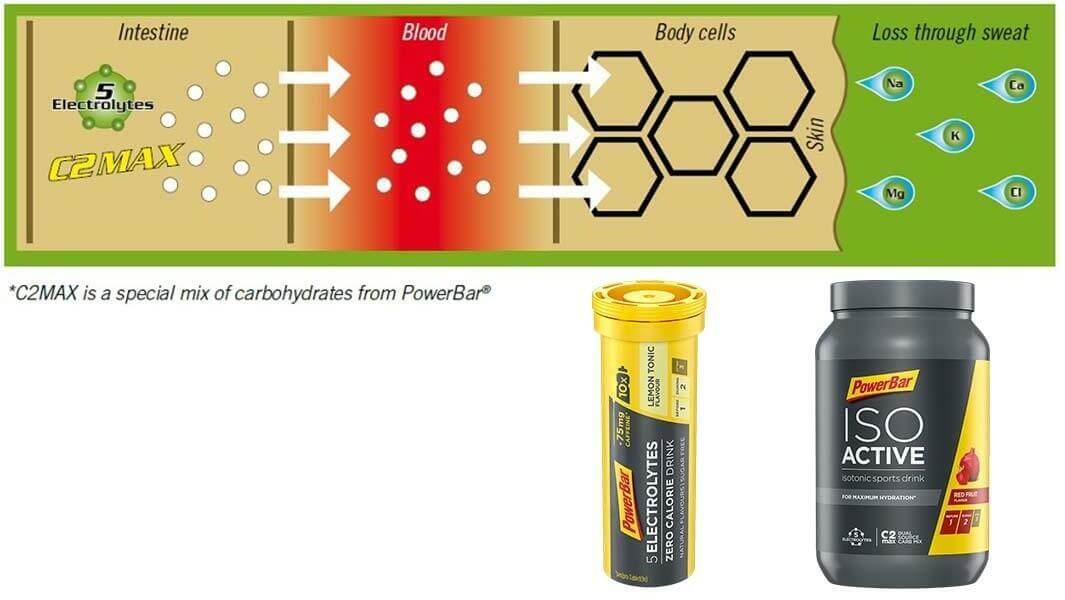
PowerBar ISOACTIVE and sports drinks with 5 electrolytes
PowerBar IsoActive and PowerBar 5 Electrolytes are designed to give you a maximum rate of hydration. They provide a carbohydrate-electrolyte solution that helps you regain your strength to maintain your endurance.
2. ENERGY
When we participate in any kind of physical activity we need energy. Carbohydrates are the number one source of fuel for endurance activities and can be stored as glycogen in the liver and muscles. This source of energy is readily available to our working muscles.
It is always recommended to "stock up" your energy tanks if you want to get an idea of your maximum performance levels. As a general rule, for pre-event meals, 3-4 hours before, you should eat a low-fat, high-carb, low-fiber, easy-to-digest meal (pasta with tomato sauce, cereal with bananas, honey and yogurt).
One hour before the start of the race, you can have a carbohydrate snack (Energize Bar) and fluid to be 100% ready.
During the race, optimal fluid and carbohydrate intake depends on the duration and intensity of the course and must be individually tailored to match the athlete's tolerance.
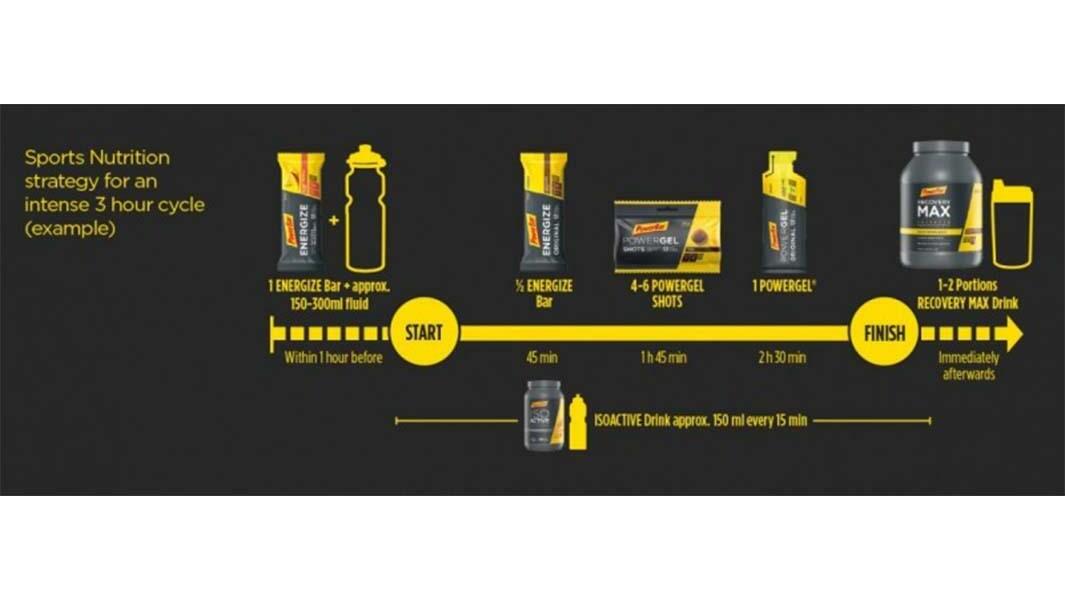
3. RECOVERY
After the race it is essential to give yourself enough time to recover. This is true after every intense workout.
It's important to give your body the right nutrients and the right amounts right after you finish your race. The body needs:
- Carbohydrates to fill their glycogen reserves;
- High quality proteins to repair damaged muscle tissue and build new muscle tissue;
- Fluids and electrolytes (especially sodium) for effective rehydration.
You need to provide the body with a balance of proteins and carbohydrates, but also enough fluids. This is when a recovery drink like PowerBar Natural Protein is invaluable, as it was designed to be consumed immediately after intense exertion, at the end of the race. To optimize muscle glycogen stores, this should be followed by high-carbohydrate meals. Increasing the total amount of carbohydrates consumed after exercise is the most important factor for long-term recovery.




